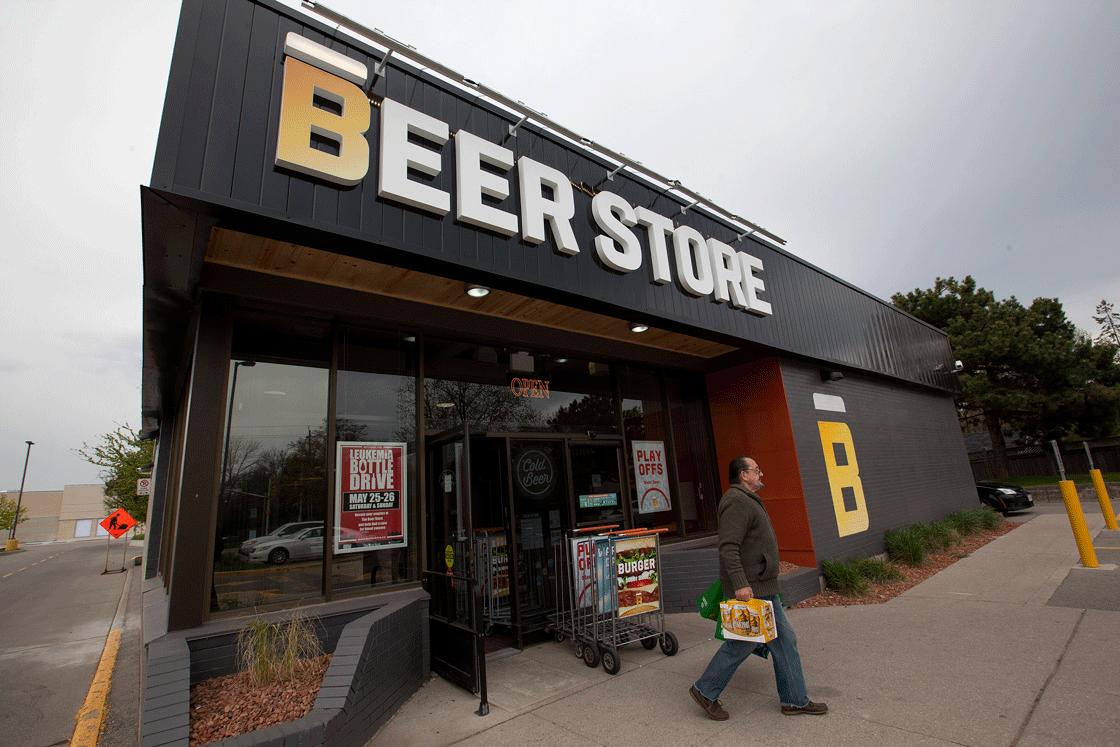Ontario’s convenience store operators continue to fight for the right to sell suds.

The Ontario Convenience Stores Association said Thursday new survey results show a large majority of residents in the province want beer and wine sales opened up to other retailers, a move that would break a monopoly on alcohol sales by the province and three large, private brewers.
An Angus Reid survey commissioned by the association shows seven in 10 want to see sales opened up to stores other than The Beer Store and LCBO.
“Support for allowing private retailers to compete with both the LCBO and The Beer Store is widespread and strong,” the association said.
The association has been lobbying Queen’s Park for more than a year to let its members sell beer across all or part of its province-wide network of 7,500 stores, including in 7-Elevens, Mac’s and Petro-Canada gas station shops.
READ MORE: It’s time Ontario considered selling beer, wine 24/7 in corner stores, say Tories
In June, Mac’s, which is owned by Quebec-based Alimentation Couche-Tard, said opening up beer sales in Ontario stores would create 1,800 jobs.
The ruling Liberals in Ontario have listened to the proposal but appear cool to the idea of disturbing the status quo – a model that generates billions for provincial coffers annually. There’s pressure to keep sales restricted coming from unions as well as the three multinational beer operators who own The Beer Store.
“Convenience is a worthy goal, but what folks have to look at is risks that come with that, the known increase in crime and addiction, underage drinking and drunk driving,” said Rob Edwards, president of UFCW 12R24, which represents Beer Store workers in the province.

Get weekly money news
READ MORE: Wynne will allow Ontario wines to be sold at farmers’ markets
“I don’t think that’s a good thing for Ontarians,” he said.
Dave Bryan, the Ontario Convenience Store Association’s chief executive, said those fears are overblown. “Any road you leave Ontario on except the far north, you get beer and wine sold in retail enterprises.”
The Beer Store is owned by Belgium-based Anheuser-Bush InBev through its Labatt Brewing unit in Canada, Molson Coors as well as Saporo, the Japanese owner Sleeman Breweries.
Few Ontarians know it, however, based on the survey published Thursday. A scant thirteen per cent of those surveyed said they were aware The Beer Store was privately owned by foreign brewers.
The Beer Store generated $2.7 billion in sales last year, according to its public report. It paid $1.1 billion to the province in taxes collected on beer sales.
Jeff Newton, a spokesperson, said The Beer Store doesn’t generate any profits of its own. “The Beer Store is a cost-recovery operation,” he said.
Critics say the business is producing ample earnings for its owners while the monopoly is costing Ontarians in the form of higher prices.
A University of Waterloo study from August – paid for by convenience store operators – found the average price difference in a 24-bottle case of beer in Ontario compared to Quebec is about $9.50, or 27 per cent cheaper in Quebec, where beer and wine is available in convenience stores.
Earnings from The Beer Store are “going directly from consumer pockets to a consortium with majority ownership by foreign based firms,” said the study by economics professor Anindya Sen.
Prof. Sen estimated that the Ontario model was inflating costs on consumers by as much as $700 million annually, a sum Sen said is being pocketed by The Beer Store’s owners.
The Beer Store has blasted the report, saying the methodology was flawed, including in its comparison taxes in Ontario while stripping them out in Quebec.
“The whole notion that there was this incremental profit in the Ontario market place because of The Beer Store is false,” Newton said.
To sweeten their offer to the province, convenience store owners say they’d be happy to sell only craft beer produced by small provincial brewers, giving them a bigger market place to sell through.
“Think what we would do for craft beers sales,” Bryan said.
That proposal would cut into the fees The Beer Store collects now as the prime distributor of Ontario craft beers.






Comments